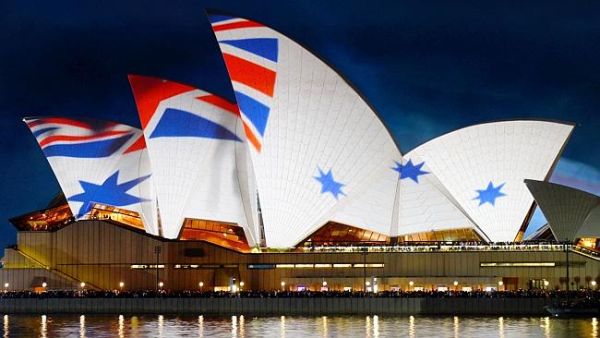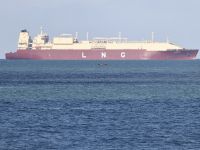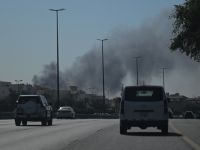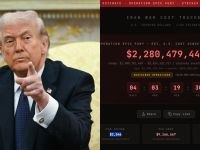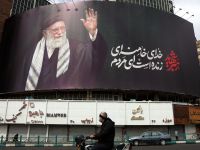Australia is putting trade relations with the Middle East in focus as the government tries to manage a widening budget deficit and a slowdown in its largest trading partner, China.
This week, Australian Minister for Tourism and International Education, Senator Richard Colbeck, will visit Kuwait, Qatar, the UAE and Saudi Arabia to drum up interest in Australia’s health, education and tourism sectors.
The visit, part of the country’s annual regional trade campaign, comes as Australia faces concerns a recession may be nearing, which could bring 24 years of consecutive economic growth to an end. After a decade long resource export boom, Australia’s economy is having to rebalance itself to weaker demand in China and falling commodity prices globally.
Senator Colbeck, who is also Minister Assisting the Minister for Trade, told Gulf News in an interview in Dubai on Sunday that the slowdown in China is one reason Australia is looking to boost the presence of its services industry in the Middle East. On Sunday, Senator Colbeck oversaw the signing of a Memorandum of Understanding between Australia and a Dubai governmental department, Dubai Exports, to facilitate trade for manufacturers, exports, traders and service providers.
Generating new demand of its services sector would be of significant benefit to Australia’s economy. The services sector accounts for 70 per cent of the Australian economy and even more for employment, but contracted in the last quarter of 2015.
The contraction came as the government said last month that the deficit in 2015-2016 will reach 37.4 billion Australian dollars (Dh96 billion), up from a previous forecast of A$35.1 billion. In fact, its deficit will widen every year on previous estimates to at least 2018-2019 when it’s now projected to reach A$14.2 billion, up from A$6.9 billion.
But while Australia is looking for Middle East trade to boost its economy, that currently accounts for just A$16 billion in bilateral trade a year compared to $213 billion with China.
Meanwhile, the Australian economy is now expected to grow by 2.5 per cent in 2015-2016, not 2.75 per cent as previously thought. For 2018-2019, it has been revised to 3 per cent, down from 3.5 per cent.
Free trade negotiations
In ministerial meetings this week, Senator Colbeck will push to restart Free Trade Agreement negotiations with the Gulf Cooperation Council (GCC). The GCC, which is Bahrain, Kuwait, Oman, Qatar, Saudi Arabia and the UAE, froze all FTA negotiations in 2009.
“We’re very, very keen to negotiate a free-trade agreement with the GCC countries … we think that’s a big opportunity for us,” he said, adding that Australia is “anxious to start negotiating.”
Senator Colbeck’s agenda includes meeting with UAE Minister of Economy Sultan Bin Saeed Al Mansouri and Chief Executive and Executive Director of Dubai-sovereign wealth fund Investment Corporation of Dubai Mohammad Al Shaibani. He is also believed to be meeting with Qatar’s Ministry of Economy in Doha.
Australia is keen on sealing an FTA with the GCC following similar agreements with China, Japan and South Korea in 2014. Australia’s government hopes an FTA will increase trade and investment, particularly in Australian infrastructure, agriculture and tourism projects.
“It’s very important for our country that we do have a strong flow of investment from outside Australia. There isn’t enough capital within our country to do a lot of the development we need to do.” Senator Colbeck said.
Senior negotiator
Gulf countries are already major foreign investors in Australia. The UAE is Australia’s 15th largest trading partner and 10th biggest foreign investor, including in ports, airports and electricity networks.
But while Australia may be pushing this week for GCC-FTA talks, its senior negotiator Trade Minister Andrew Robb, who spearheaded the agreements with China, Japan and South Korea, is missing from the delegation. Senator Colbeck dismissed suggestions the absence of Minister Robb, a senior minister compared to Senator Colbeck, is a sign that Australia is waning interest in GCC negotiations. Australia is also negotiating an FTA with India.
“I’ve been appointed as the minister assisting Andrew [Robb] in those trade negotiations so I don’t necessarily see that it sends any particular signal at all. We have a minister here, we have 80-odd businesses and institutions with us. We’re very, very keen and I’ll be conducting those discussions and negotiations with all the vigour I can muster,” he said.
Next week, an Australian delegation of 25 companies led by a Saudi-based official will visit Egypt as part of the trade campaign.
Facbox: Australian Middle East trade won’t pivot to Iran
Australia’s trade and investment priorities in the Middle East are unlikely to change following the lifting of sanctions against Iran earlier this month, a government minister told Gulf News Sunday.
“I don’t think we forget our good friends ... We have very good relationships here. We know the business community. We have good relationships with government. I don’t think that in any sense there is any thought or value in forgetting those that have been our friends for a long period of time. That just doesn’t make sense to me,” Australia’s Minister for Tourism and International Education and Minister Assisting the Minister for Trade Senator Richard Colbeck said in Dubai.
Australia has close political and economic relations with many Arab Middle East states, including the six Gulf Cooperation Council (GCC) members.
By Alexander Cornwell


